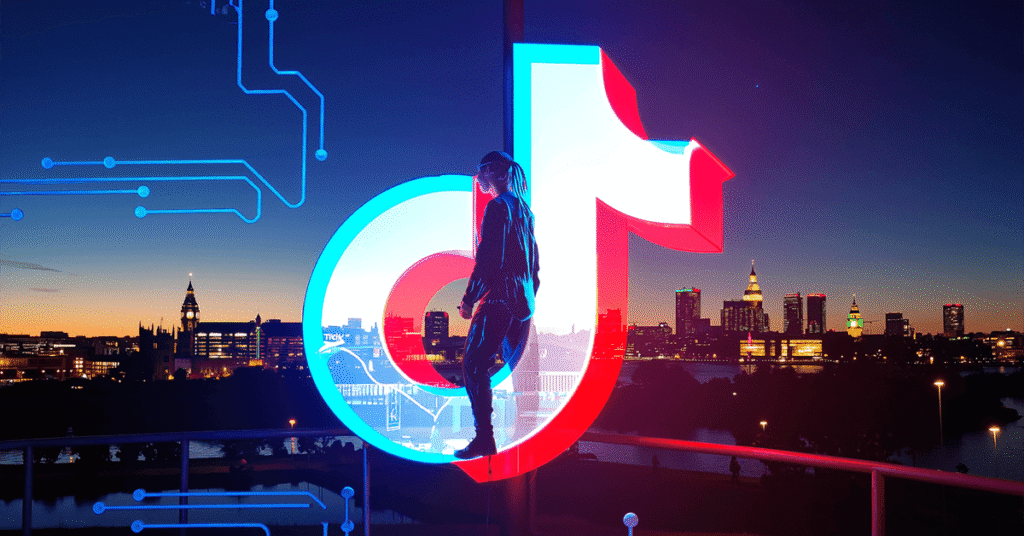The phrase TikTok UK AI layoffs is dominating headlines as the social media giant prepares to cut approximately 300 trust and safety jobs in the UK. These cuts come amid a major pivot toward artificial intelligence-driven content moderation. As the Online Safety Act looms, TikTok is betting on AI to enforce rules more efficiently, sparking questions about the future of human moderators.
Why Are TikTok UK AI Layoffs Happening?
The layoffs stem from TikTok’s strategy to consolidate operations and rely more heavily on machine-learning algorithms. According to reports, AI tools are being deployed to handle everything from flagging harmful content to detecting misinformation. While AI is cheaper and faster, critics argue it lacks the human judgment needed to handle nuanced cases.
This decision places TikTok at the center of a global debate: is automation in trust and safety a revolutionary step forward or a risky gamble with user wellbeing?
5 Shocking Facts About TikTok’s UK AI Layoffs
- 300 Jobs Affected – Nearly 300 UK-based staff in trust and safety roles are expected to be let go, marking one of TikTok’s largest UK workforce reductions.
- AI Moderation Expansion – TikTok’s AI systems now screen billions of videos daily, replacing tasks once performed by human staff.
- Triggered by Regulation – The rollout of the Online Safety Act has accelerated the shift, as platforms face increased accountability for harmful content.
- Industry Trend – TikTok is not alone. Other tech giants, including Meta and YouTube, are investing heavily in AI-driven moderation, signaling a broader shift in Big Tech.
- Public Backlash – Critics argue that AI may misinterpret cultural nuances, potentially leading to wrongful bans or unchecked harmful material.
Impact of the Online Safety Act
The Online Safety Act aims to hold social platforms legally accountable for harmful content. For TikTok, this means stricter oversight and faster response times. By deploying AI moderation at scale, the company hopes to avoid massive fines and reputational damage. However, experts warn that relying too heavily on automation could result in false positives (flagging harmless content) or false negatives (missing dangerous posts).
Human Moderators vs. AI: Who Wins?
While AI excels at speed and scale, human moderators bring contextual awareness. For example, AI might struggle to distinguish satire from harmful speech. Many analysts argue the ideal model is a hybrid approach, blending AI efficiency with human oversight. The TikTok UK AI layoffs raise concerns about whether the company is abandoning this balance.

Broader Industry Implications
The TikTok UK AI layoffs highlight a seismic shift in how tech companies view labor and automation:
- Cost-Cutting Measures: AI systems reduce long-term payroll expenses.
- Data-Driven Moderation: Algorithms improve as they process more data, potentially becoming more effective over time.
- Job Security Risks: Content moderation—once seen as a growth field—is now at risk across the industry.
If TikTok’s gamble pays off, expect other firms to follow suit. If not, this could spark a reckoning for AI in trust and safety.
Frequently Asked Questions (FAQ)
Q1: How many TikTok UK jobs are being cut?
Approximately 300 trust and safety roles are being eliminated.
Q2: Why is TikTok replacing staff with AI?
To cut costs and comply with new regulations by scaling up content moderation.
Q3: Will AI replace all human moderators?
Unlikely. While AI will take over most tasks, complex cases may still require human oversight.
Q4: What role does the Online Safety Act play in this?
It pressures TikTok and other platforms to act faster on harmful content, encouraging automation.
Q5: Is this part of a wider industry trend?
Yes—companies like Meta, YouTube, and X are also investing in AI moderation.
In the same way that the recent quantum computing breakthrough shows how technology is reshaping industries, the TikTok UK AI layoffs highlight how automation is rapidly transforming the future of work.
Conclusion
The TikTok UK AI layoffs reveal both the promise and pitfalls of automation in social media. While AI offers unprecedented efficiency, it risks alienating users if it cannot replicate the nuance of human judgment. With 300 jobs lost and AI taking center stage, TikTok’s move is a shocking sign of the times—and a potential template for the industry’s future.
Do you think AI will truly keep TikTok safe, or is the company sacrificing quality for cost-cutting? Share your thoughts in the comments.

